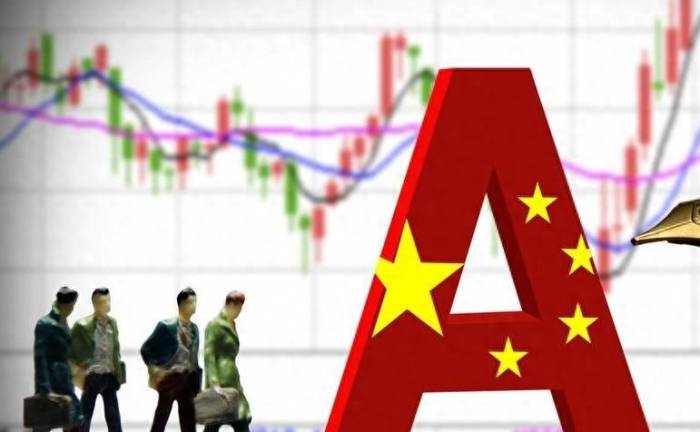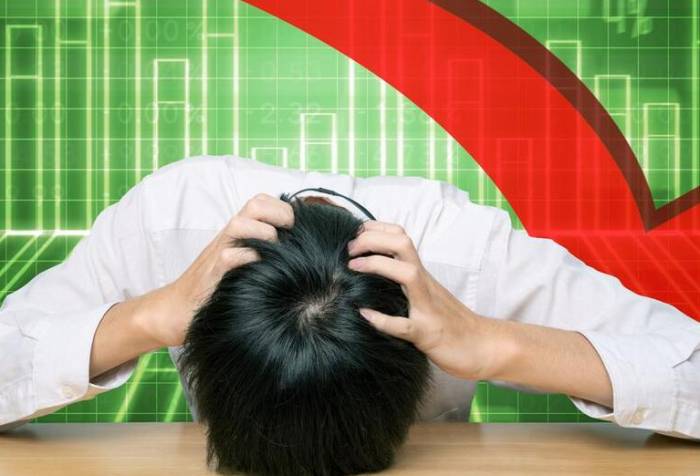Liquidation of funds and margin calls lead to a sharp drop in A-shares! The ChiN
Liquidity scarcity and the rigid selling at the trading level have become the decisive factors overwhelming the A-share market. The lack of liquidity here does not mean that the market is truly short of liquidity; the central bank has been releasing liquidity through reverse repos this week. In layman's terms, a large number of institutions or retail investors are actively or passively selling stocks, and there is a lack of buying interest here. The same selling pressure leads to a larger drop in stock prices, and in severe cases, it leads to a liquidity crisis, and even worse, a stock market crash, which is similar to a bank failing due to a run.
In fact, a liquidity crisis had already emerged in the past two weeks, pushing snowball products into the limelight. Last week, due to the "national team" supporting the bottom and a series of heavy policy measures such as the central bank's reserve requirement ratio cut, the A-shares stopped falling and rebounded. However, it seems that the liquidity crisis has not been resolved but has become more severe.
Looking at the chart below, although the Shanghai Composite Index has stabilized and rebounded, the financing balance in both markets is still rapidly decreasing, indicating that the overall margin accounts are cutting positions. Additionally, in the past two days, there have been many rumors about fund products being liquidated or being close to the liquidation line and being forced to cut positions. The most talked-about seems to be Wu Yuefeng, who made a big bet on AI last year and saw a significant increase in net value, but then lost it all when AI plummeted, and now he is close to the liquidation line. Whether he has actually been liquidated is unknown, as it is all just hearsay.
Furthermore, there is a theory that January 29th marks the first day of the full suspension of the lending of restricted shares in the short selling optimization mechanism. The portion of restricted shares that have not been settled and have not been sold short may accelerate the selling process when returning the shares, thereby creating selling pressure and affecting the market. Alternatively, some may use this window to "sell high and buy low." Analysts believe that the theory of a sharp decline caused by unsettled restricted share short selling is not valid, and the theoretical impact is limited.
In the past two days, foreign capital has been selling in the morning but has bought back as the A-shares accelerated their decline. Today, foreign capital net bought 1.7 billion, which is entirely due to domestic capital's chaotic cutting of positions. Regarding the decline of A-shares, we can confidently state that it is a liquidity crisis, and each rapid drop is a bloody chip from margin calls or forced selling.
As of today's closing, the ChiNext Index has fallen more than 16% this month, and it only fell 19% for the entire year last year. In one month, it has nearly matched the annual decline, and it has set the largest monthly drop since the circuit breaker in 2016. If this is not a liquidity crisis, then what is?
Since it is a liquidity crisis, it can only be resolved through liquidity. The national team's previous approach of supporting liquidity by buying Shanghai 50 ETF and CSI 300 ETF is correct. However, the operation is very confusing. For example, they should not have bought yesterday, but today they bought in three waves, yet they did not buy during the most critical panic selling at the end of the day. So where did the support for liquidity go? They did not buy when they should have, and the stock market can only implode.Now the A-share market has reached the stage of clearing out chips. The worst-case scenario is that all kinds of leverage are completely blown up, which is the most thorough clearance. However, the management definitely does not want to see this, and the management's bottom line has been revealed last week. Therefore, the worst situation for A-shares is the result of the management's bottom line under restrictive conditions such as the Federal Reserve's interest rate hike, short selling in the external market, and various trading level fluctuations in the internal market.
What we ordinary retail investors can do is to survive in this chip clearing battle. The bottom is the most brutal, and many of the most resolute bulls are forced to sell out due to margin calls. Take a look at the K-line, and every accelerated decline is a lot of people's joys and sorrows. Only by surviving can there be a possibility of making a comeback. Those who can hold on here are likely to make a comeback.
Finally, let's look at the market. As of the close, the Shanghai Composite Index fell by 1.83%, the ChiNext Index fell by 2.47%, the Hang Seng Index fell by 2.47%, and the Hang Seng Technology Index fell by 3.50%. The turnover of the two markets shrank significantly to 0.66 trillion, with more than 5,000 individual stocks falling, and nearly 90 stocks hitting the limit down.
Looking at the industry, the electronics, media, real estate, light industry manufacturing, and social service industries led the decline.






























Comments